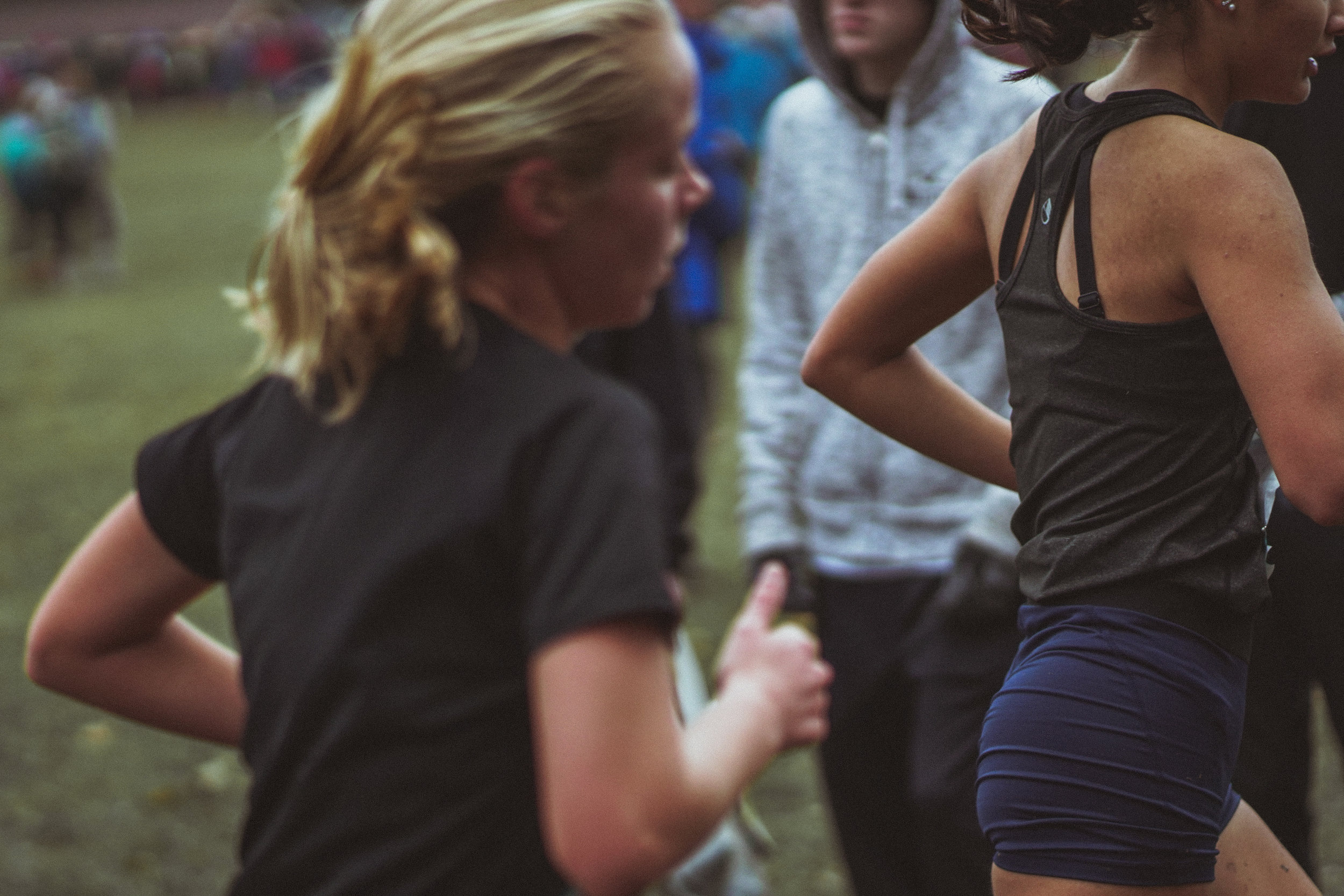Finding passion after losing it.

Running was the first sport I was truly passionate about. After years of being a mediocre soccer player on a developmental team, something new was sparked inside of me when I joined cross country the summer before my freshman year; I had the potential to actually be good. I made varsity from the first race, and my identity as a runner grew through my freshman and sophomore years. I got the privilege of running in state for both xc and track both years alongside my teammates, and had four relatively smooth seasons, free of any major injuries or setbacks.
At some point toward the end of my sophomore year, I developed a gastrointestinal condition, which was the biggest setback I had experienced thus far in my running career. The physical symptoms disrupted my training and definitely took a toll on my performance, but the mental taxation of feeling like my body was working against me, destroyed me. I lost most of the confidence running had given me, and I began to hate my body for not functioning how I wanted it to. I blamed myself for struggling to preform, and I felt like I wasn’t working hard enough. These thoughts, along with other circumstances, manifested themselves in the form of an eating disorder.
I began to severely deprive my body of nourishment and constantly over exercised, which eventually spiraled into bulimia. At this point, running was no longer a passion, but a tool for my self destruction. The only thing more important than the number on the clock was the number on the scale, and I used both as a measure of my self worth. I carried this mindset with me into track season junior year, where I had a mediocre season and hated every second of it. I appeared healthy enough and faked enjoyment for running, but in reality, I was hanging on by a thread both physically and mentally. The only thing that kept me from stopping running completely was the inevitable self hatred that would come with being deemed a quitter. I ran for the sake of control, and I suffered.
It wasn’t until after a long time remaining in this mindset that I had become aware the hole I had dug for myself. My passion had become more of a compulsion and a mean of control, and everything important to me outside of running felt like it was slipping too. I thought I had lost the girl who loved the sport. I hated how my attempt to gain control caused me to lose it, and I was tired of being miserable. Turns out I didn’t lose her, I just had a bit of healing to do. I got help, started recovery, and began to slowly replace some of the pressure I put on myself with compassion.
My identity as a runner is becoming less defined by the way I look, or any number (not even the times I run). When I think of running, I think of grit and passion. I think of the conversations I have with my teammates that are funny enough to make me forget we’re in the middle of our long run, the satisfaction of finishing a hard interval workout, and (maybe) even the achievement of that “death” feeling you get after finishing the 800. Finding peace of mind is still a journey in progress for me, but I can confidently say that I am learning to love my sport again.
I have struggled with the “dark side of distance running,” but it has allowed me to see what passion is not, and more importantly, what it is. Next year, I’ll be running collegiately. I know that this will be a whole new journey with new successes, and inevitably, new challenges. However, I am confident that my rekindled love for my sport will remain resilient through any challenges I may face. Passion does not come from having unwavering control over your situation, but by a sincere love for the things that make you happy. Run because you love it.
- Katie Doucette ( @k_a_t_i_e_d )
Katie is a runner from Colorado, she trains in the Nike Pegasus. And she’d enjoy a long run with Jordan Hasay.




